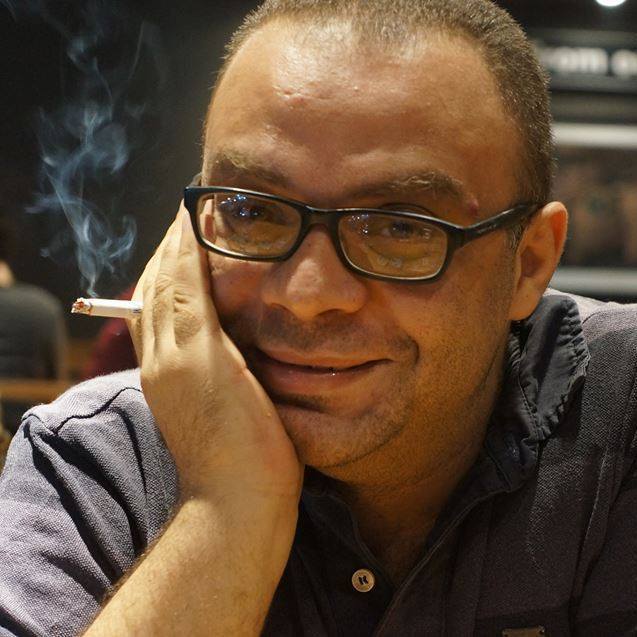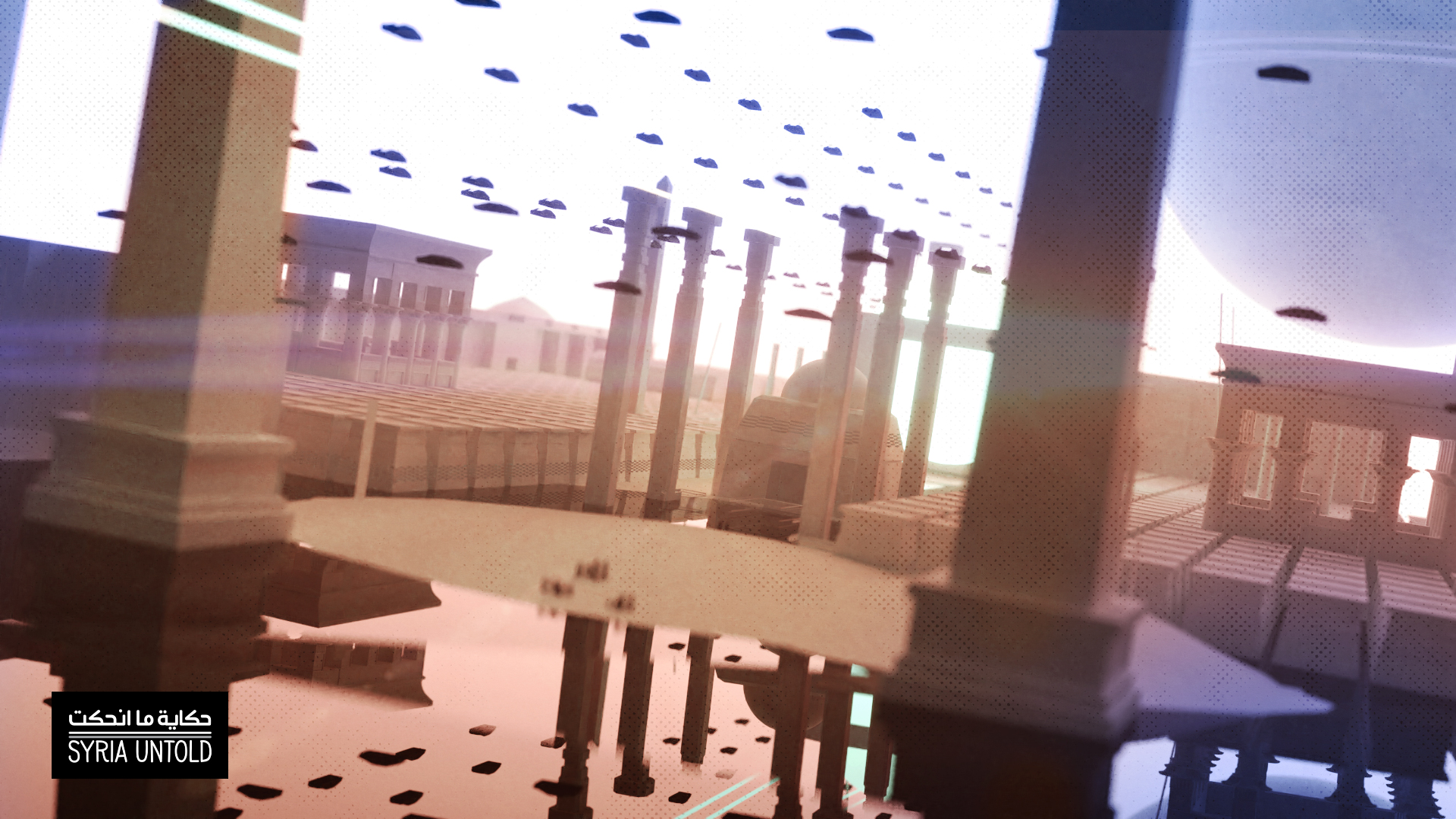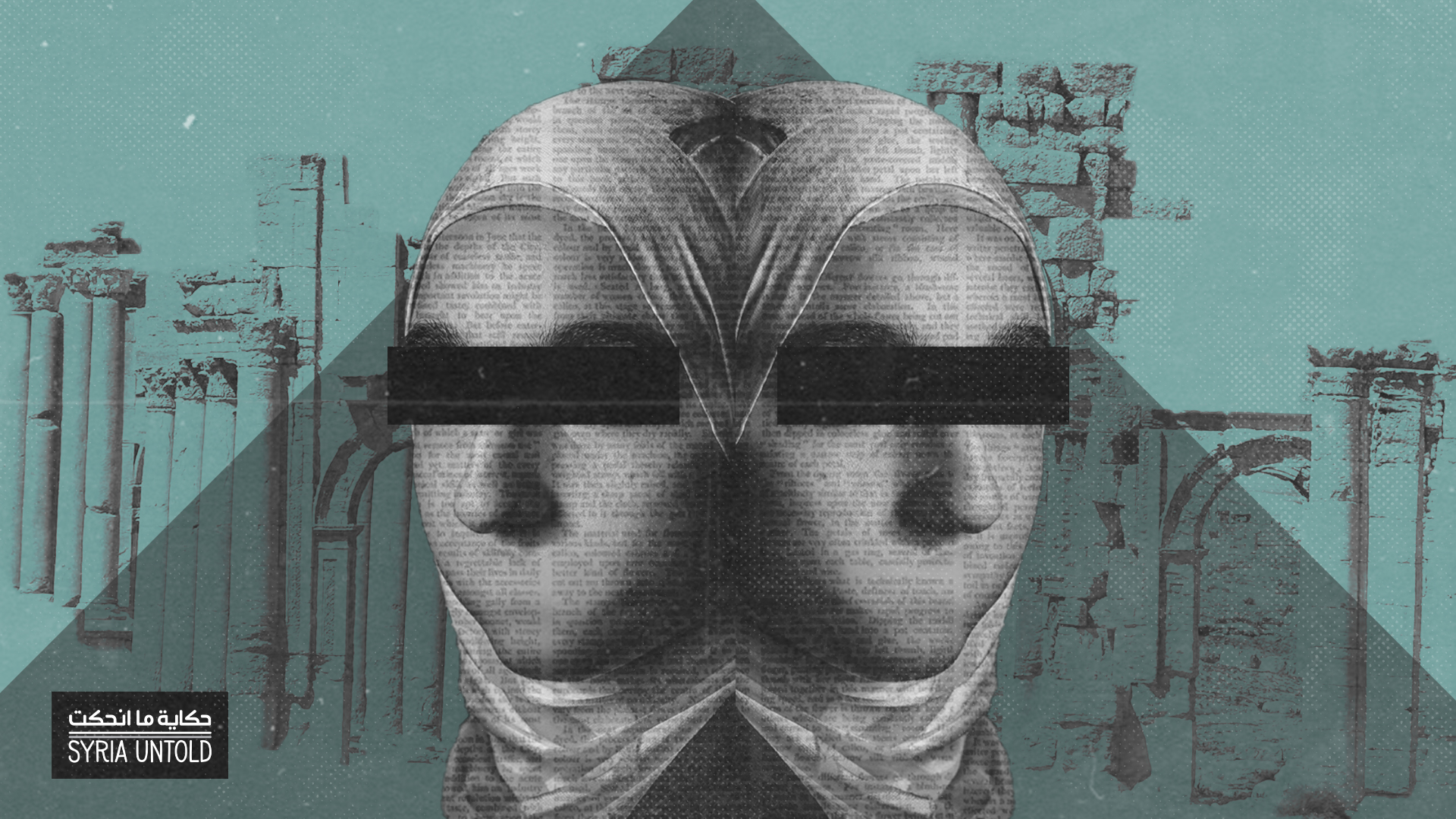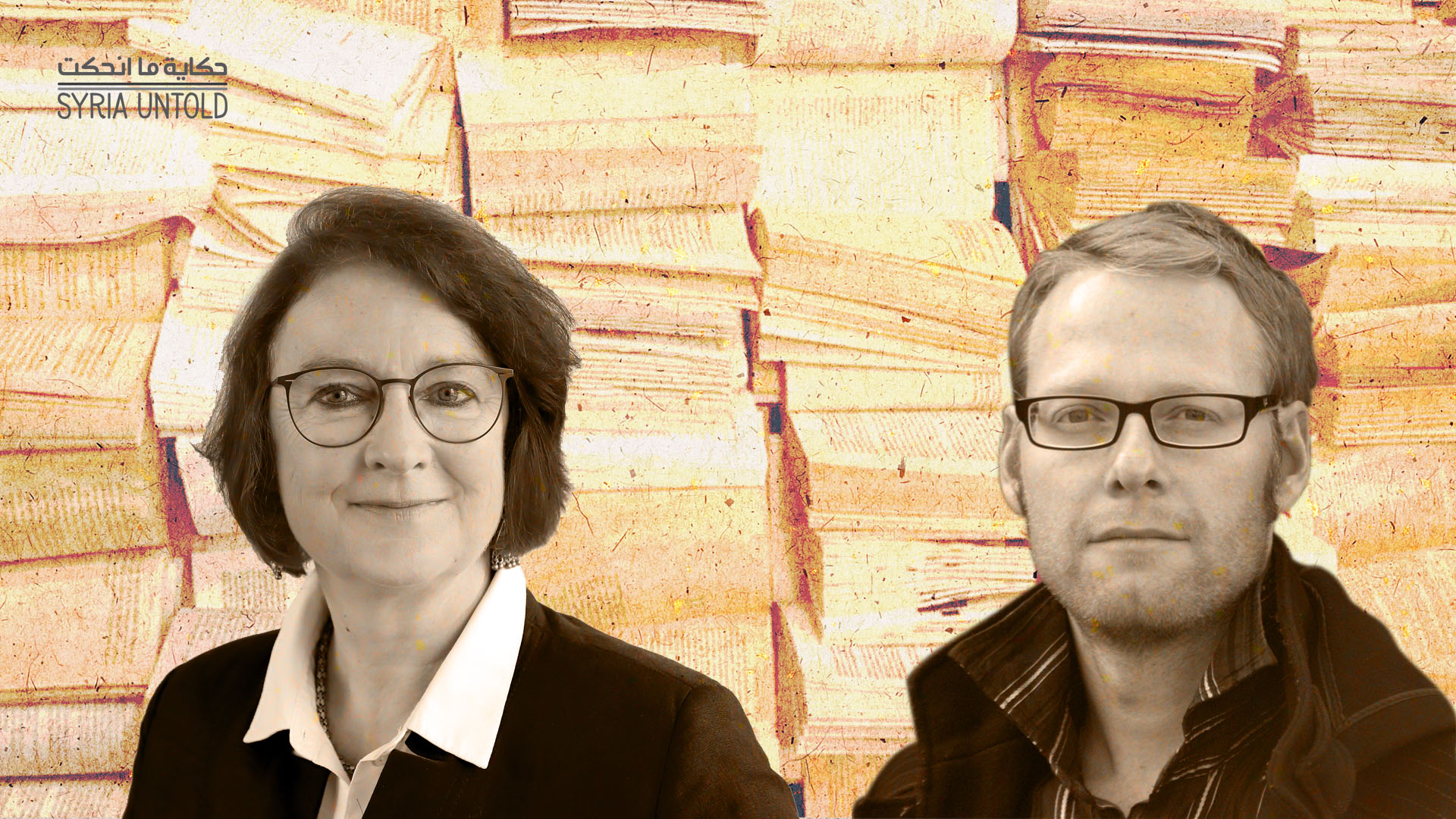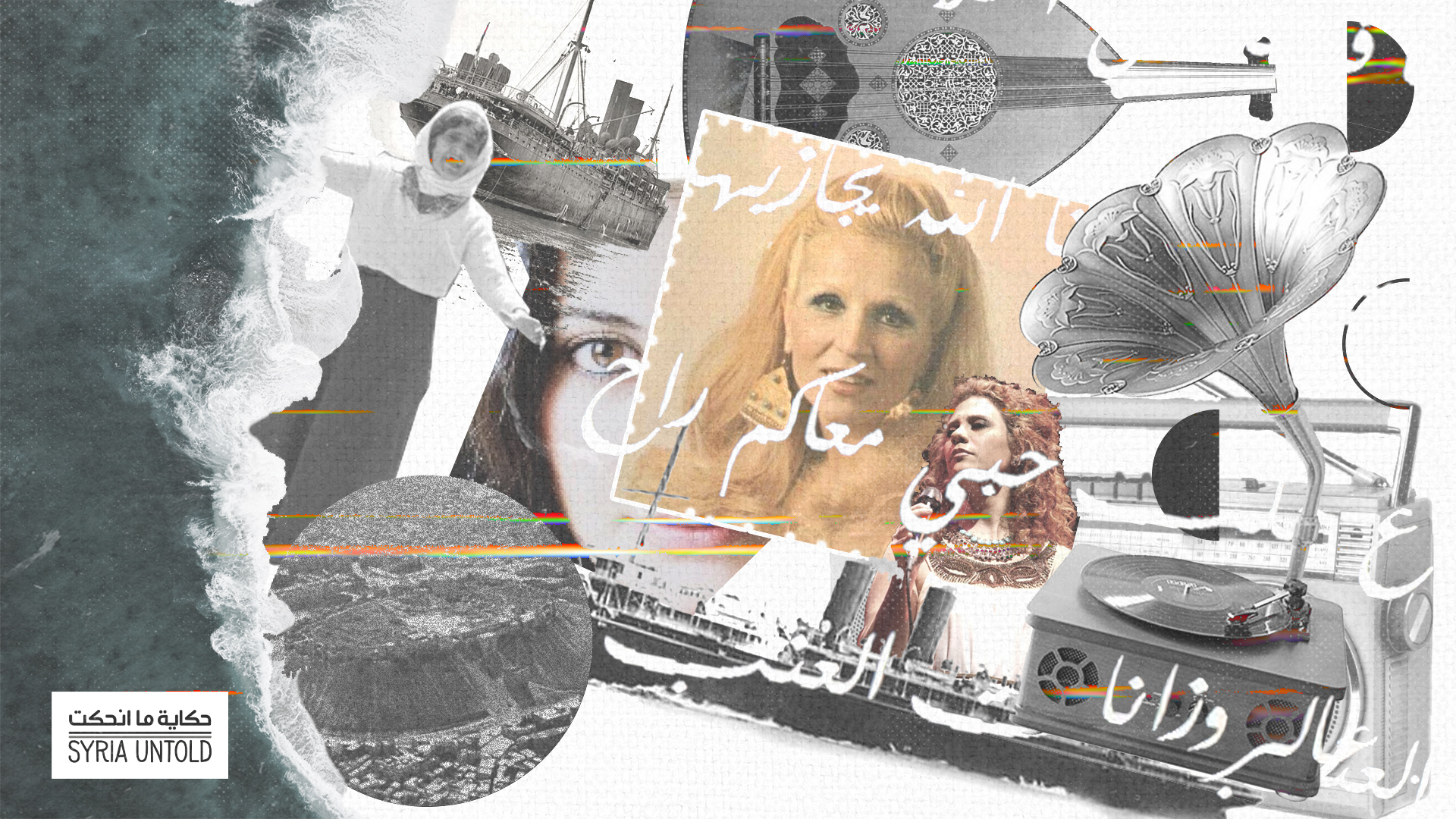This piece is part of SyriaUntold’s week-long collaboration with Ecologìas del Futuro on science fiction and imagining the future in the MENA region.
Scroll down to listen to this piece in its original audio format.
When I think about the future of the world, I am not preoccupied by the sorts of things that previously governed our imagination: flying saucers, cyborgs, revolutions of artificial intelligence. I am not frightened by the idea of robots taking control, or by aliens, or humankind destroying itself. On the contrary, I believe that humankind will prevail, that it was born to act. A person exists to be the master of their destiny, and perhaps they need less than three centuries to realize this. People must be aware of their ties to nature, to the environment, animals and trees, and to integrate these things into their own nature, into their core, as partners anew. I trust that this will happen.
No, evil will not disappear, even after a thousand years. Contrary to the writings of different religions and myths, I don’t imagine that the end of the world will be through some catastrophe, a pandemic or the hell of some dystopia on Earth. The world will end, rather, when humankind reaches utopia, free from the eternal clash between good and evil, which has always driven us. Only then will the world exhale in the happiness of one who has finally found themself, the conclusion of a long journey of contradictions and torment where their only motivation was to survive and develop. Upon the attainment of this ultimate happiness, our need for existence will dissipate.
Science fiction in MENA: An artistic tool for change
26 April 2021
‘Palmyra syndrome’: What are Syrians allowed to speak about amid war and revolution?
02 April 2021
I see all hope in something simple and extraordinary happening right now. I see the intermarriage of people from different racial backgrounds, which not only shortens the distance between people, but also creates brighter, more intelligent and even nobler people. I think to myself: perhaps people will become more sensitive to receiving and accommodating those who are different, more resilient to bearing the weight of this world’s nightmare, where the top threat is humankind itself.
These people are the ones who will, inevitably, find solutions to everything that seems stuck in place with no solution in sight. They will overcome every obstacle, just as humankind has always done, discovering within themselves new evils and a struggle that will drive humanity forward. What the simmering of conflict conceals is that ideas are never wiped away completely. Perhaps they recede a little, slip away from the weight of the center, but they always return. The true fate of ideas is to converge, mix and interact, to become brighter and more sensitive. They do not disappear. Rather, they ripen after losing their hard shells, their notorious weaponry, desiring to occupy the landscape on their own.
Someday in the future, and not in the past, the revolution will find the source of its poetics, as Karl Marx said, if I remember correctly.
In the future, the Marx’s weight as a “prophet” will diminish, and he will become a normal person, just as Moses, Jesus and Muhammad came to resemble average people like us. We will barely remember them, because much of the nonsense spread by their followers, and the complexities of the ideas that time accumulated like a veil, will vanish in favor of what is simpler and more effective: for human existence to be liberated, to love more and hoard less, to look more deeply and do less, to think longer and compete less. We must free the senses so that the ear returns to music and the eye once again recognizes form. We will discover that the essence of what these prophets of religion and the world aspired to (after they stopped being prophets) was freedom of the individual to develop themself, not to establish regimes or priesthoods run by criminals. The condition for their survival is their transformation into a lighthouse, guiding the lost without repressing them, manifesting the kindness of the onward movement of things, rather than the heaviness of immortality.
Ideas are never wiped away completely. Perhaps they recede a little, slip away from the weight of the center, but they always return.
After every hell, heaven unfurls as a garden, and after every heaven there is hell. All that humankind possesses, and all that remains of his first journey through life is a courage to take on the unknown, such that there is no difference between attainment and nothingness. Every resurrection is a resurrection of what we know and a beginning of what we don’t know. I have faith that humankind will defeat old age, disease, hunger and the necessity of work. We will even defeat death, only to discover that perhaps it was the least of the evils surrounding us.
And the Middle East? What a tragedy, stuck between the jaws of past beasts, its members turning back, fleeing from the ghosts that are not content simply to whisper. No, these ghosts terrorize, haunt, deceive, shackle us with invisible, devil-like handcuffs of silk and steel.
We have been torn beneath the domination of something, something massive that exists more deeply than any knowledge or ignorance of it, something stacked by our ancestors’ ancestors like pyramids atop our shoulders, like heavy temples of stone, of severe words, of holiness, beauty and idiocy.
In the Middle East, when we write literature imagining the future as a dystopia, we do not truly think about the future.
I have good news: these beasts are dissolving. I realize that in the depths, and despite what appears to be their brutality, they are uttering their final cries. Society truly realizes, despite all the stubbornness and arrogance, that the values it carried for so long are crumbling beneath its feet, that all this wailing is nothing but weak, desperate clinging, denial of a reality that will go on no longer. The dictatorship that came from the remains of stone caves will, in spite of them, make way for freedom. And from within dictatorship’s putrid hardness, you will inhale the forbidden fruits we have longed for. Society’s myths and ghosts will not find a dark corner in which to hide, as they have all discovered that their survival depends on remaining hidden. This is what everyone both realizes and denies, that the original sin has shifted. It lies no longer in Adam’s acceptance of the apple, but in his refusal to eat it.
No, ideas will not disappear, nor will the sky. Rather, they will return to their original position, in the heart, where they will grow exponentially. And with them, every land will also expand, surpassing our ideas, just as I hold faith and hope in a coexistence that has no authority to give priority to one idea over another. We will finally discover an evil more serious than a thousand petty evils we have already survived. I dream of our religions learning something from the “Tao” without giving up what makes them unique. Perhaps we can come to understand nobler motives for good and evil, as the two blend with one another and trade spots.
In the Middle East, when we write literature imagining the future as a dystopia, we do not truly think about the future. All that concerns us are the landmines and ghosts of the present. If all we do in literature is re-sound the same alarms, our paths will only lead to a bleak fate.
We are not condemned to darkness and despair—hell is only for those who believe in it and invent it. Heaven is the world’s motor, the mirage it needs. We will never lose its effects. We will never stop pursuing it.
Listen to Ahmad Al Fakharany's original audio recording of this article:


